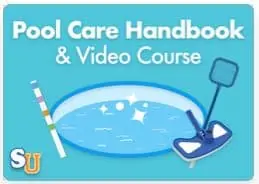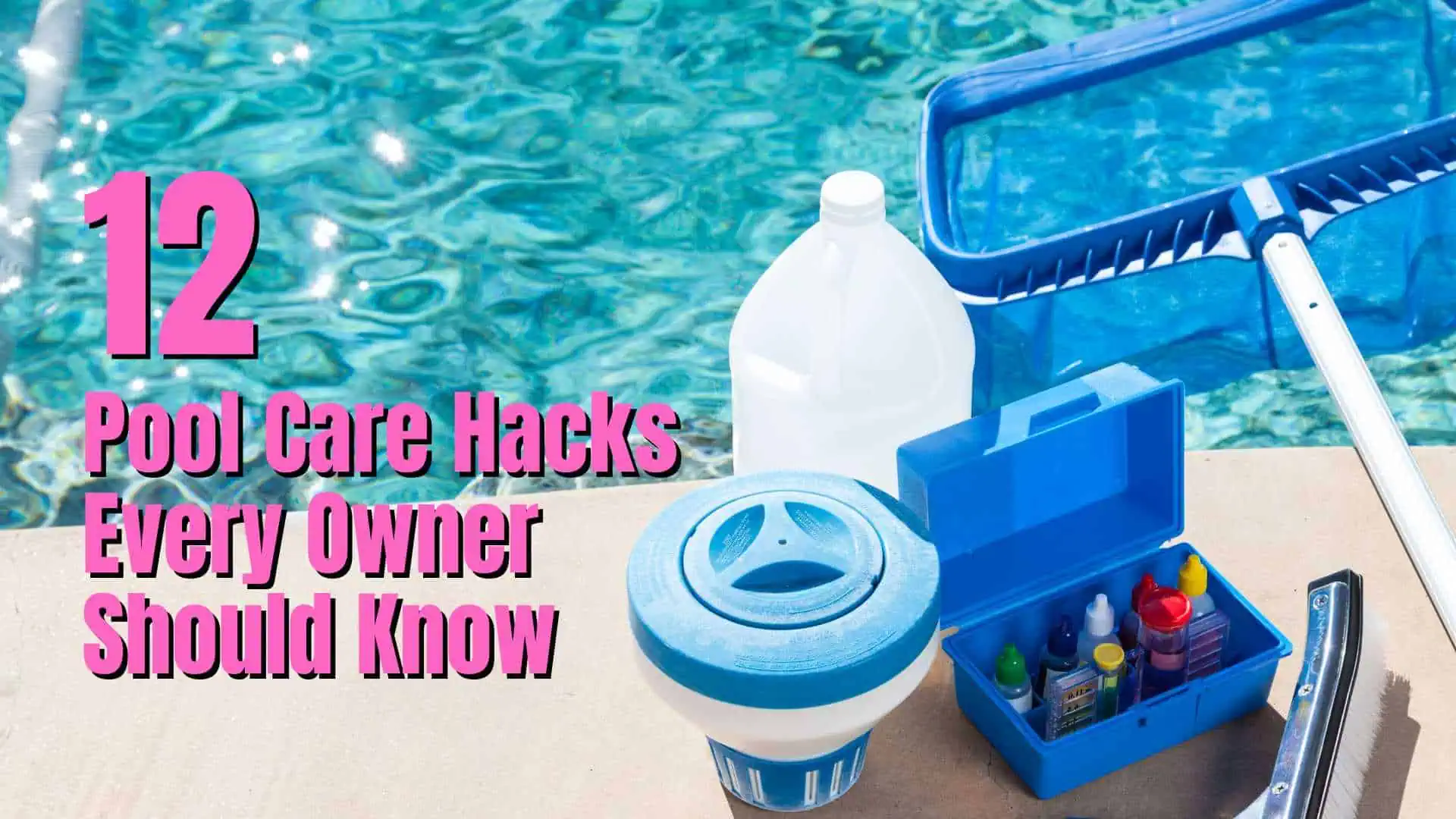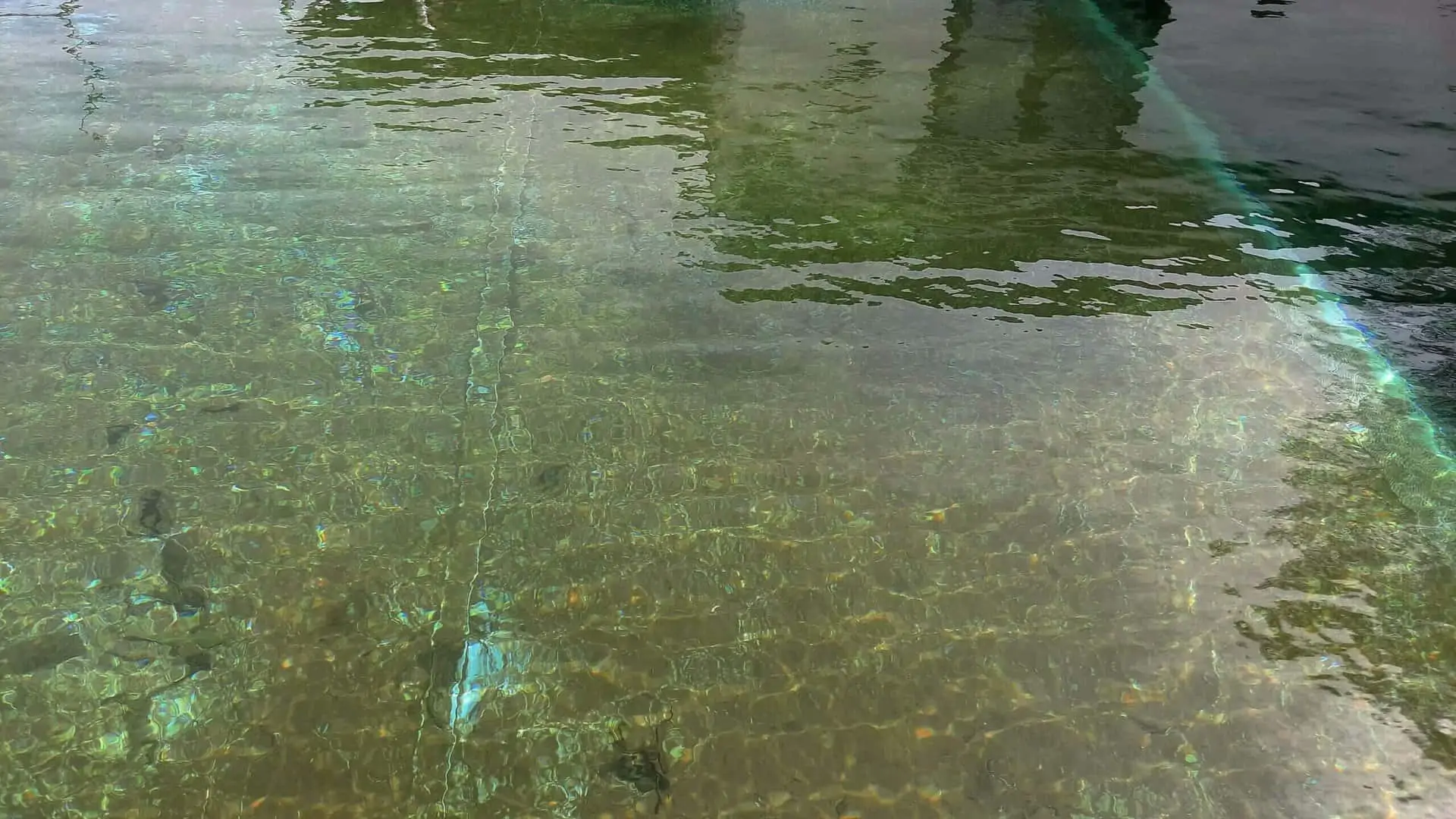If you have a chlorinated pool, shocking it with chemicals is one of the most important maintenance steps to keep it sparkling clean. Without it, algae and other contaminants will quickly build up in the water. But how often should you shock your pool?
During the swimming season, pools should be shocked as often as once every week but at least every two weeks to maintain the pool. This applies whether it is an above-ground pool or an inground pool.
Pools should be shocked at the beginning and end of the pool season to prepare the pool for being covered in the off-season. Shocking also helps prevent algae blooms after rain and heavy use.
Shocking the pool doesn’t have to be an intimidating experience, even if you’ve never worked with pool chemicals before. Read on to learn more about shocking the pool and how often you should do it.
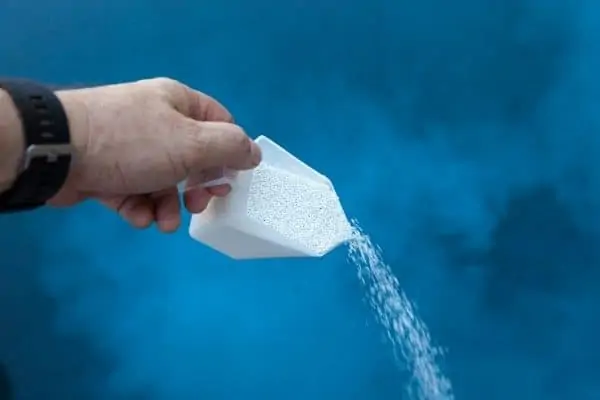

How often should I shock my pool?
The usual rule of thumb regarding how often to shock pool water is to be shocked every one to two weeks. However, this is very much dependent on several factors.
Personally, I do not have a rigid pool shock schedule. Generally, only my wife and I use the pool, and although some weeks we swim every day, other weeks we hardly swim at all.
So if we haven’t swum too much and there have been no special events such as heavy rain (see below), then I may leave it three weeks between shocking. Of course, I clean the pool and test the water regularly so I may shock if the chemicals are out of balance.
If you have children and friends who regularly swim, you will obviously need to shock more often than I do.
When should you shock your pool?
Here are a few other scenarios where you might find it a good idea to shock your pool:
Opening up in spring
When you open your pool for the swimming season, spring algae has a chance to start propagating quickly with rising temperatures and exposure to sunlight. Shocking the pool with chemicals at this point can help prevent a lot of hassle and clean-up later.
After heavy use
When many swimmers enter the pool at once, this can cause a drop in chlorine levels and the introduction of bacteria that can make the pool dirty. This can be particularly true if lots of children have been in and out dragging in all sorts of contaminants on their feet.
Shocking after a pool party can help bring the pool’s pH levels back to baseline and help sanitize it after heavy use.
After heavy rain
Rain can interrupt the pH levels of a pool while also introducing contaminants that encourage the growth of algae and bacteria. Shocking the pool after rain can prevent the pool from turning green after heavy rains.
During periods of dry, hot weather
Hot weather raises the pool water temperature, making it a more favorable environment for algae and bacteria. Flushing the pool with fresh cold water and shocking it can keep hot weather from making the pool water look cloudy.
Algae
At the first sign of algae, usually seen at the top of the pool walls or on steps, you should shock the pool to eliminate it before it can take hold and give you a completely green pool. To learn about Algae and how to get rid of it, read my article Algae 101.
When free chlorine is low
When you test your pool’s water chemistry using test strips or a test kit, if it shows that the free chlorine level is low (and the combined chlorine is high) you must shock the pool to bring the free chlorine level up to the correct level.
Shocking a pool Outside regular maintenance is a good preventative measure whenever environmental factors increase the risks of bacteria and algae growth or disrupt the pool’s pH levels.
Shocking and reducing chloramines in pool water
Shocking is also a good idea if swimmers find their eyes and skin irritated by chloramines, which build up in the water as free chlorine reacts to organic contaminants and binds with ammonia-based contaminants like sweat and urine. (Source: Center for Disease Control)
Many swimmers mistakenly associate a strong chlorine smell or burning eyes with excess chlorine in the pool water, but the opposite is actually true.
A strong chlorine smell in pool water and eye irritation results from the chloramines in the water, not the chlorine. Adding additional chlorine to the water in the form of shock helps to reduce the smell and effects of chloramines.
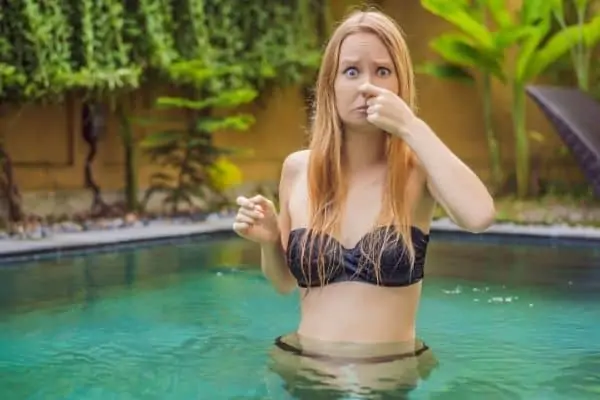
Can you shock your pool too much?
To know whether or not you can shock your pool too often, it’s important to learn what pool shock is. Pool shock is just the generic term for concentrated chlorine, and it comes in several forms.
Chlorine is added to pool water to remove chloramines from the pool that can irritate swimmers’ eyes, skin, and respiratory tracts.
When you add too much shock to your pool, you will have too much chlorine in the water. It takes an extreme amount of over shock to make the pool unsafe for swimming.
However, adding too much shock can prevent you from taking accurate chemical measurements of the pool water. The chlorine causes this effect as it bleaches the test strips. This can lead to a false negative for chlorine and may lead some amateur pool owners to continue to add even more shock.
What do you do if you have overshocked your pool?
If you accidentally add more than the recommended amount of shock for your pool, there are few solutions except to wait. Over time, the chlorine in the water will evaporate as it is exposed to sunlight and oxygen through a process called oxidation.
To speed up this process, make sure the pool stays uncovered while the shock wears off and that you run the pool’s pump to keep the water circulating through the pool filter.
Also read: How to lower the chlorine in a pool
What time of day should you shock your pool?

The best time of day to shock a pool is in the evening after the sun is down. This allows the pool chlorine time to spread out in the water, and cleaning it before daytime temperatures reduces the effectiveness of the shock. Ultraviolet light reduces the effectiveness of chlorine.
Shocking the pool in the evening also allows you the opportunity to run the pool pump overnight to help distribute the shock around the pool. This means that the pool will probably be safe to swim after shocking again the following day.
Pool Care Handbook and Video Course
When I bought my house with a swimming pool, I knew absolutely nothing about pool care. I just winged it for a while, making many mistakes along the way.
Fortunately, I was recommended Swim University’s Pool Care Handbook and Video Course. I bought it and it was an absolute game-changer.
It was the best money I spent that year. I learned everything from basic cleaning to advanced troubleshooting. Swim University offers a no-quibble refund policy too so what do you have to lose?
How long does pool shock last?
Pool shock can last in a pool for up to twenty-four hours before the concentrated chlorine begins to dissipate, which means that chlorine levels will be higher than usual during this twenty-four-hour period.
You should test the chlorine levels in the pool and not allow swimmers back in until the chlorine levels reach 4-5ppm to prevent irritation to eyes, skin, and lungs from chlorine exposure.
After a maximum of twenty-four hours, the pool should be sanitized and ready for use.
Tips for using pool shock
Along with knowing when to use pool shock, it’s also important that pool owners understand how to use it correctly. Pool shock is formed of strong, volatile chemicals that should be handled cautiously whenever used.
Here are a few general tips for getting the most out of shocking your pool:
- Don’t add shock directly to the pool. Granular shock is highly concentrated and letting it settle on the bottom of a vinyl pool liner can quickly bleach it out, leaving unsightly blemishes. Instead, pool shock should be mixed with water in a five-gallon plastic bucket before being dumped into the pool as evenly as possible.
- Scrub your pool out regularly. Scrubbing your pool’s liner helps dislodge bacteria and other contaminants so that shock can access them more easily and the filter can pick them up once they’ve been sanitized.
- Use a manual vacuum on algae rather than a robotic pool cleaner. Robotic pool cleaners don’t remove algae from the water. Manual water vacuums can completely remove algae from the pool as run-off without reintroducing it. With manual vacuuming, you’ll have less algae build-up between shock treatments.
- Make sure your water pH is stable. While water that is too acidic may look sparkling and pretty, it will gradually cause corrosive damage to your pool’s mechanical components and any plastic-based pool parts, such as the liner. Use pool chemicals to maintain pH-neutral water that is neither acidic nor alkaline.
Using pool shock regularly is an important part of pool maintenance, but it’s not the only thing you’ll need to do to keep your pool looking clean. Some scrubbing and water testing is also necessary for keeping your pool crisp and clear.
Warning
As with adding any chemicals to a pool, always add the chemicals to water, NOT WATER TO CHEMICALS.
In other words, if you will be mixing the shock solution in a bucket always fill the bucket with water first and then sprinkle in the shock. Do not put the shock into the empty bucket and then fill it with water.
Shocking is vital for pool success
It might seem tedious at first to have to shock your pool once a week during the summer, but pool owners who neglect this basic maintenance task will soon find themselves dealing with a green, cloudy mess that is a lot more difficult to treat than it is to prevent.
It’s better to get into the habit of shocking the pool every week when you first open it. That way, it’ll soon become second nature for you to keep it crystal clear and clean.
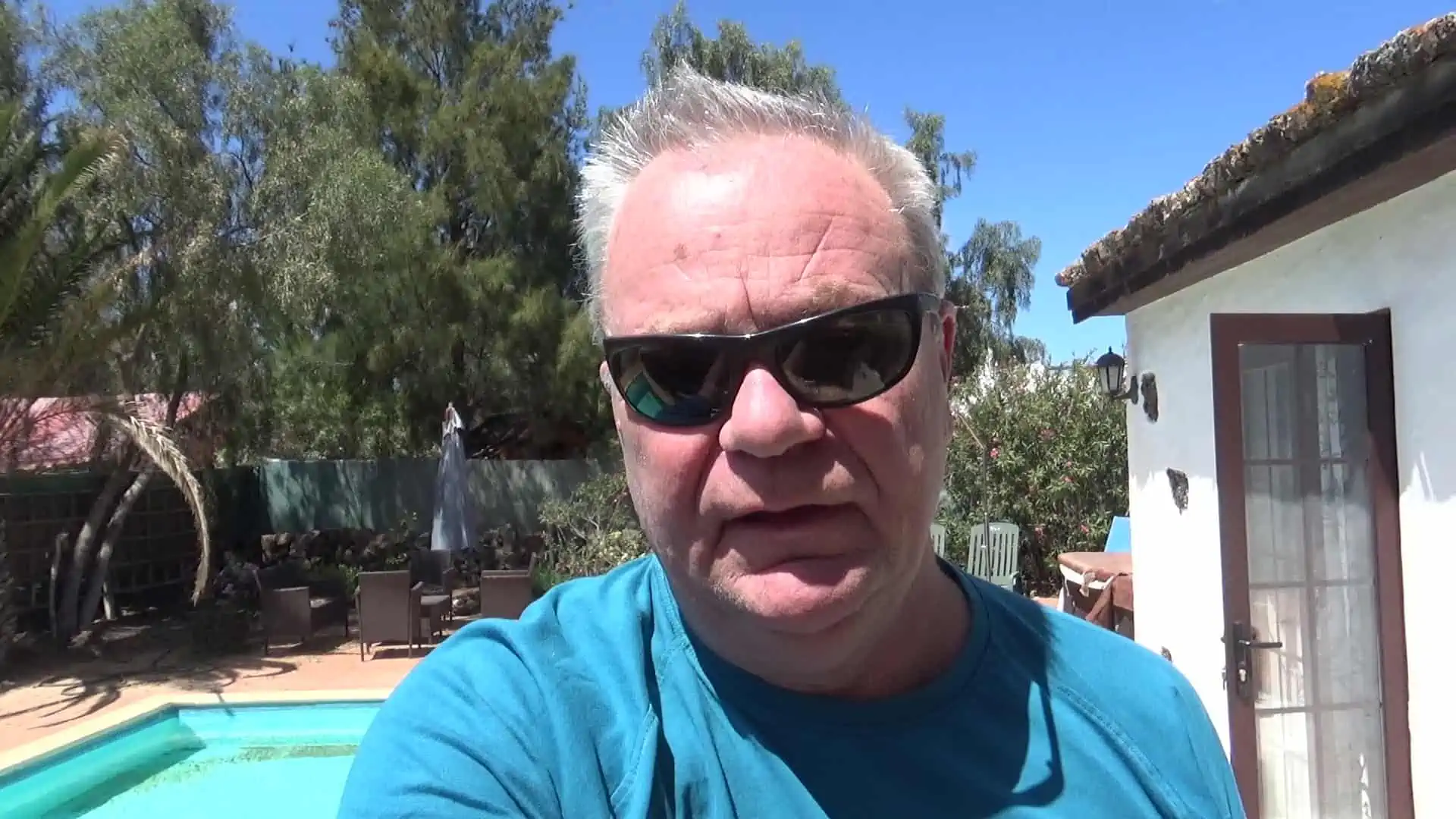
I have had hot tubs for over 20 years and a pool for the last 10 years. I had to learn how to clean, maintain and fix them the hard way. Since then I have helped many friends and neighbors with their pools and now I want to share everything I have learned with you. About Me

